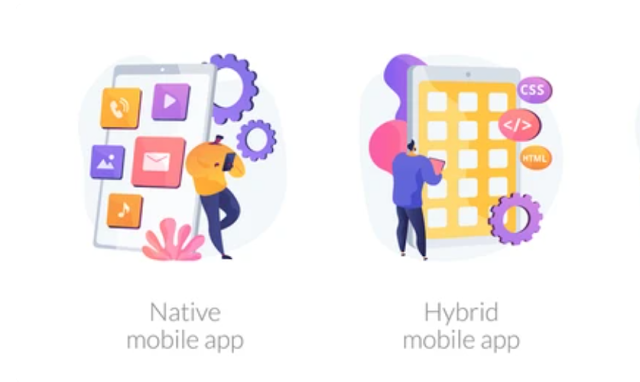Mobile App Development: Native vs. Hybrid Apps
When developing a mobile app, one of the key decisions you'll need to make is choosing between native and hybrid app development. Here's a detailed explanation of native and hybrid apps, along with their pros and cons:
Native Apps:
Native apps are developed specifically for a single platform, such as iOS (using Swift or Objective-C) or Android (using Java or Kotlin). They are built using platform-specific tools, frameworks, and programming languages. Here are the advantages and disadvantages of native apps:
Advantages of Native Apps:
Performance: Native apps offer superior performance because they are optimized for the specific platform they are built for. They have direct access to the device's hardware and can leverage platform-specific features, resulting in faster execution and smoother user experiences.
User Experience: Native apps provide a seamless and intuitive user experience, as they adhere to the platform's design guidelines and UI/UX standards. They can offer native animations, gestures, and interactions, which contribute to a more polished and familiar user interface.
Access to Device Features: Native apps have full access to the device's hardware and software features, such as the camera, GPS, accelerometer, and push notifications. This allows developers to leverage these features more easily, providing a richer and more integrated user experience.
App Store Optimization: Native apps have the advantage of being featured prominently in platform-specific app stores. This can lead to increased visibility, organic discovery, and better opportunities for user acquisition.
Disadvantages of Native Apps:
Development Time and Cost: Developing separate native apps for multiple platforms requires additional development time, effort, and resources. It can be more expensive compared to developing a single cross-platform app.
Maintenance: Maintaining and updating separate codebases for different platforms can be complex and time-consuming. Each platform requires its own set of updates, bug fixes, and compatibility checks.
Hybrid Apps:
Hybrid apps are built using web technologies such as HTML, CSS, and JavaScript, wrapped in a native container. They use frameworks like React Native, Flutter, or Ionic to create apps that can run on multiple platforms. Here are the advantages and disadvantages of hybrid apps:
Advantages of Hybrid Apps:
Code Reusability: Hybrid apps allow for code reusability across multiple platforms. With a single codebase, developers can build apps for both iOS and Android, reducing development time and effort.
Cost Efficiency: Developing a hybrid app can be more cost-effective compared to building separate native apps. It eliminates the need for hiring separate teams for different platforms and reduces maintenance costs by managing a single codebase.
Faster Development: Hybrid apps offer faster development cycles since developers can write code once and deploy it across multiple platforms. This can significantly reduce time to market, giving businesses a competitive advantage.
Simplified Maintenance: Maintaining hybrid apps is easier as updates and bug fixes can be applied to the single shared codebase, eliminating the need for separate updates for each platform.
Disadvantages of Hybrid Apps:
Performance Limitations: Hybrid apps may not perform as well as native apps, especially for complex and resource-intensive functionalities. They rely on web technologies and must bridge the gap between web and native components, which can lead to slower performance.
Limited Access to Native Features: Hybrid apps rely on plugins or native wrappers to access native device features. While many native features are available through plugins, there may be limitations or delays in implementing new platform-specific functionalities.
User Experience: Hybrid apps may not provide the same level of user experience as native apps. The UI elements may not match the platform's design guidelines perfectly, resulting in a slightly different look and feel across different platforms.
App Store Approval Process: Hybrid apps can sometimes face challenges during the app store approval process. App store guidelines may require additional scrutiny for apps built with cross-platform frameworks, which could result in delays or rejection.
Choosing between native and hybrid app development depends on several factors, including the app's requirements, target audience, development timeline, budget, and performance expectations. Native apps offer optimal performance and access to platform-specific features but require more development time and resources. Hybrid apps offer code reusability and cost efficiency but may have limitations in performance and native feature access. Assess your project needs and consider these factors to make an informed decision about the development approach that best suits your app.












